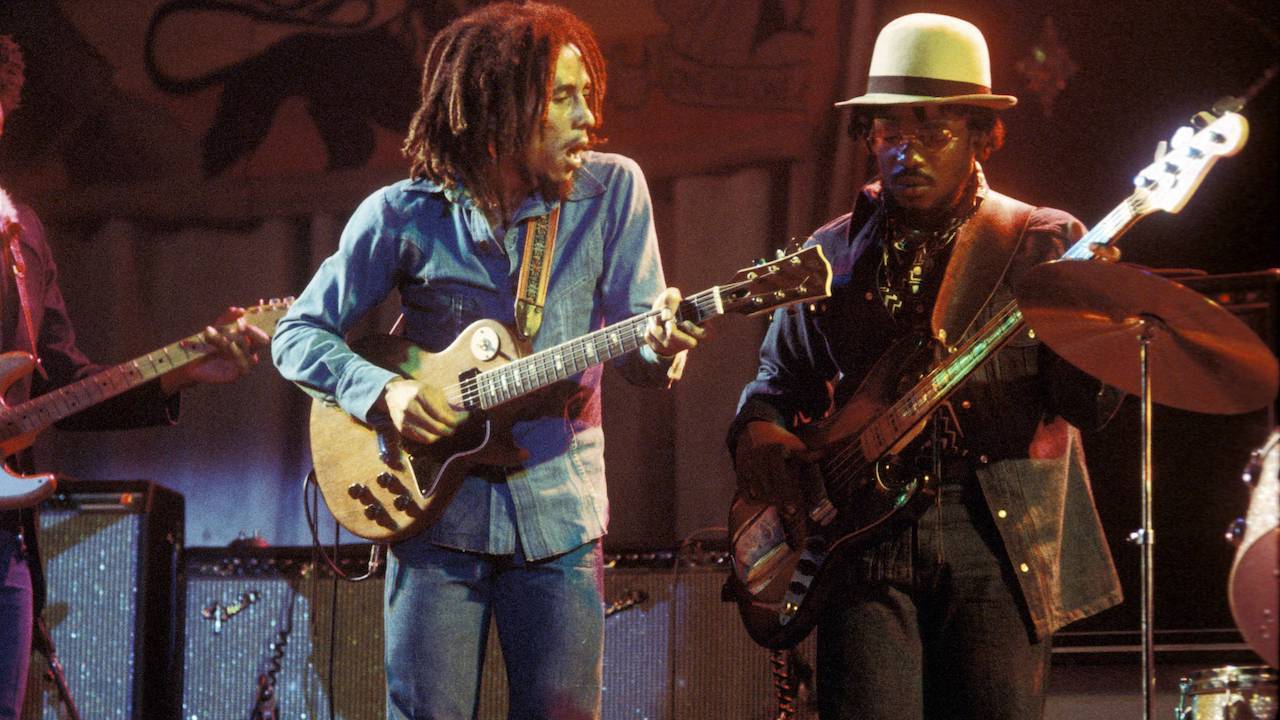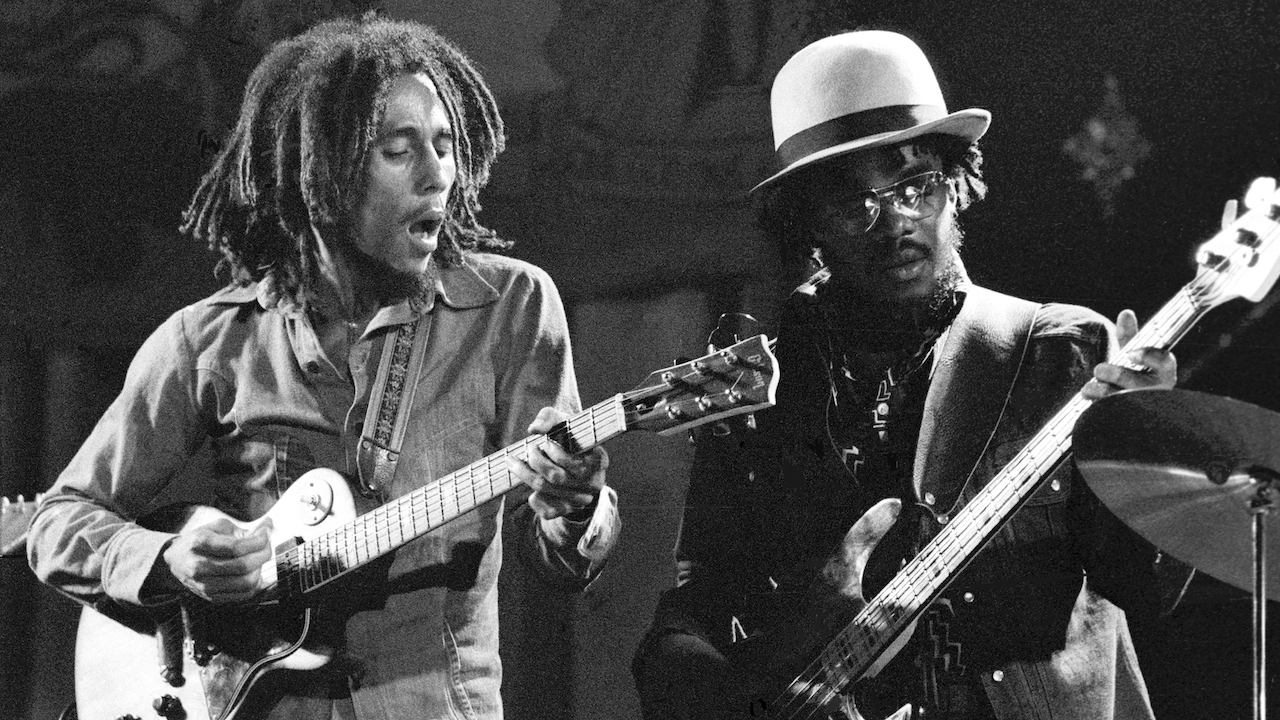“The drum, it is the heartbeat, and the bass, it is the backbone” Listen to Aston “Family Man” Barrett’s isolated bassline on Bob Marley’s Is This Love
Bob Marley’s enduring hit is rife with reggae bass Barrett-isms: quarter-note triplets, resting on one, and unison riffs

The late Aston “Family Man” Barrett’s body of work is a living textbook on the theory and practice of reggae bass guitar. With Bob Marley & the Wailers, each of his bass parts seemed to feature its own melodic and rhythmic ingenuity.
“Fams” had already crafted riddem-rich sub-hooks on such classics as Stir It Up, Get Up, Stand Up, I Shot the Sheriff, No Woman, No Cry, Exodus, and One Love when he hit the studio with Marley to record Kaya in 1978.
The album's most enduring hit, Is This Love, is rife with reggae bass Barrett-isms: quarter-note triplets, resting on one, unison riffs with guitar, and call-and-response interplay with Marley's vocal. The song's body-bouncing shuffle – like that on Marley's Jamming – makes it a timeless reggae groove.
You can revisit the isolated bassline below.
A quirky key to learning the tune lies in the three bars that begin each verse. It's repeated four times and contains the guitar-doubled motif in bars one and two that serve as an answer to Marley's vocal statement. Play all four bars squarely on the beat, remembering to swing your eighth-notes.
Also keep in mind Barrett's upright-influenced thick bass sound (and that he likely plucked these notes with a combination of thumb and fingers).
In the eight-bar chorus, Barrett plays support eighths under Marley's quarter-note triplet melody, interestingly sitting on the 5th at the stopping point in bars 1 and 3 – just enough movement to qualify it as a sub-melody, Again, swing your eighths and keep them even.
Get The Pick Newsletter
All the latest guitar news, interviews, lessons, reviews, deals and more, direct to your inbox!
In the transition section following the chorus, the first two bars are unison instrumental. Marley's vocal comes back in bar 3, where “Family Man” really steps it up melodically. Hear how his arpeggio movement ends on the C natural dominant 7th of the D chord, while Marley is singing around C#, the major 7th of the chord.
As Barrett told BP in his October '07 cover story, “When I'm playing the bass, it's like I'm singing. I compose a melodic line and see myself like I'm singing baritone.”
Following another two-bar instrumental, Barrett reworks the last two notes of the phrase against Marley's vocal – this time making his note C#, to align with the root of the chord.

There are eight measures leading back to the verse (two bars each of C#m, Bm, F#m, and E), for which Barrett plays in the style of the chorus. Then get ready for the odd three bars to start the second verse. The song repeats in its entirety before going out on the looped verse figure.
Keep in mind attitude is a big intangible when playing this or any reggae feel. As Barrett once pointed out, “The message and the music come together. It's all in the expression. The bass line has to be as commanding as the lyrics.”
Chris Jisi was Contributing Editor, Senior Contributing Editor, and Editor In Chief on Bass Player 1989-2018. He is the author of Brave New Bass, a compilation of interviews with bass players like Marcus Miller, Flea, Will Lee, Tony Levin, Jeff Berlin, Les Claypool and more, and The Fretless Bass, with insight from over 25 masters including Tony Levin, Marcus Miller, Gary Willis, Richard Bona, Jimmy Haslip, and Percy Jones.
“When I first heard his voice in my headphones, there was that moment of, ‘My God! I’m recording with David Bowie!’” Bassist Tim Lefebvre on the making of David Bowie's Lazarus
“One of the guys said, ‘Joni, there’s this weird bass player in Florida, you’d probably like him’”: How Joni Mitchell formed an unlikely partnership with Jaco Pastorius









